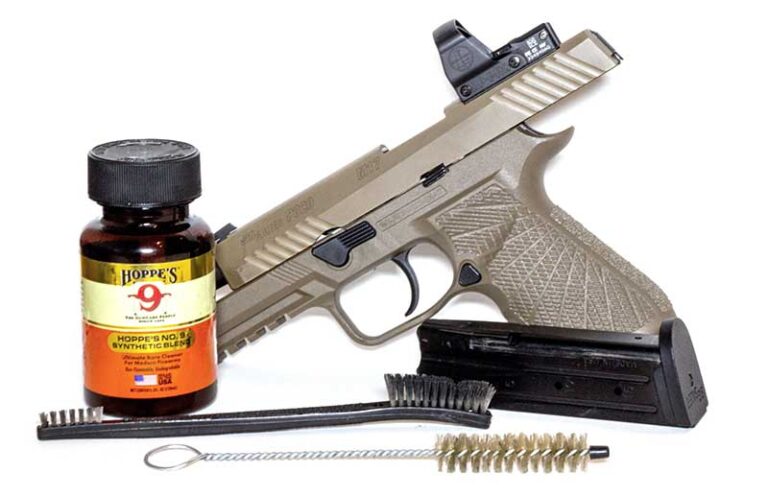
Gun cleaning is important, but there’s no need to waste your time cleaning them too much.
My father served in the Army during the Korean War. He’d been a shooter and hunter prior to that, but it was the military that taught him about firearms preventive maintenance checks and service (PMCS). The Army’s modus operandi of cleaning your gun every time you use it originated much earlier than with my father’s military career in the 1950s, and it’s persisted to this day. Dad passed that lesson to me, and it took a long time for me to outgrow it. If you have the custom of cleaning your gun every time you shoot it, you might consider kicking that habit like I did.
Gun Cleaning History
Our first guns were fueled with ammunition loaded with black powder. Black powder is made of sulfur, carbon and potassium nitrate. When black powder is burned, it’ll leave a layer of soot inside the action and barrel of a gun. The more the gun is shot, the worse this fouling gets, and it can impede the operation of the gun’s action.
Also, this soot or residue is hygroscopic, and with the addition of moisture in the atmosphere, it forms a corrosive substance. The soot or oxide turns into potassium or sodium hydroxide, which is corrosive to steel. If a gun fueled with black powder isn’t cleaned very soon after it’s fired, it can begin to corrode … and even be ruined.
Because of this, the military realized the importance of cleaning guns immediately after they had been used. Otherwise, their reliability and accuracy would degrade. Military armorers remain obsessive about this. When the world transitioned to noncorrosive smokeless powder, made from nitrocellulose, nitroglycerin and additives to reduce flash, fouling and for stabilization, this practice of cleaning a gun every time it was fired persisted, and veterans like my father shared this with friends and family.
Is it necessary?
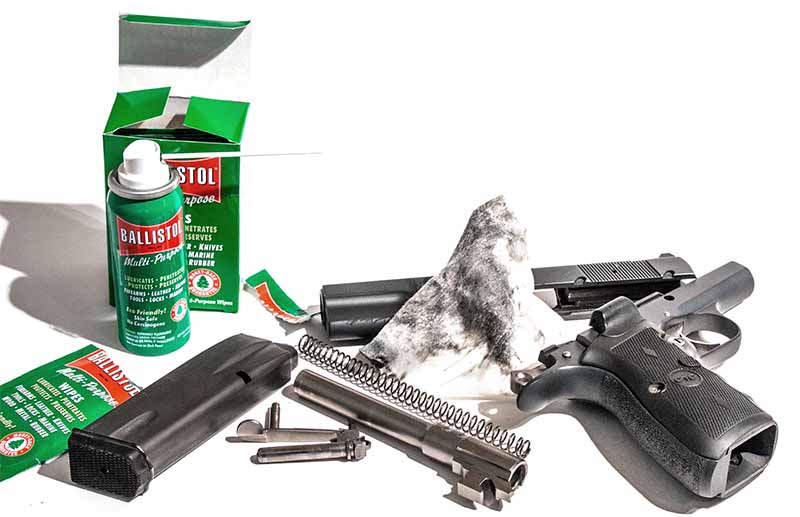
The companies that manufacture gun cleaning gear would love for you to follow this guidance because you’ll need more cleaning gear. But, if the carbon fouling in the action must be cleaned after every use, then why would it not need to be cleaned after every shot? The same could be said of barrels. If you must clean the carbon, copper and lead fouling out of your barrel after every use, then why would you not need to clean it after every shot?
Understandably, we spend a lot of money on our guns, and we want them to last as long as possible. If you enjoy cleaning a gun, then by all means have at it: Make it your nightly ritual, clean it before you use it, while you’re using it and after you use it. Hell, you can even get it out of the safe every month and clean it again. The truth is, with modern smokeless powders, gun cleaning really only needs to occur under certain circumstances.
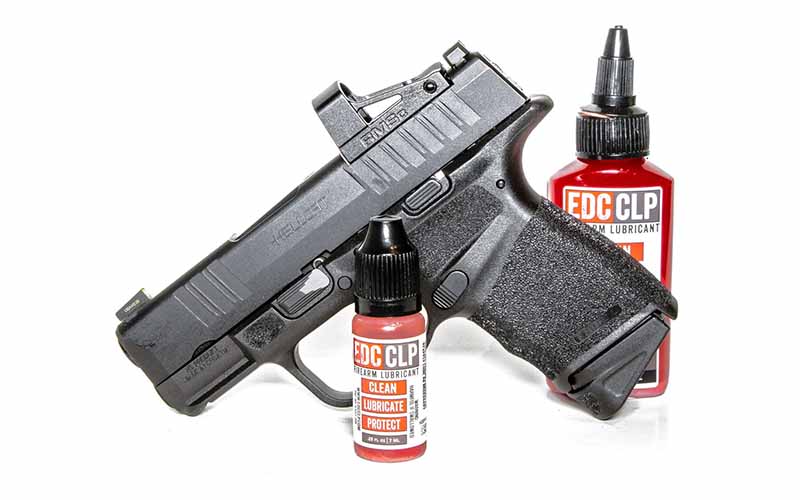
When To Clean
You learn as you go, and with more than a half-century of gun handling behind me, I’ve learned a bit about cleaning guns. I don’t clean my car every time I drive it, don’t clean my oven every time I use it, and I damn sure don’t clean my guns every time I shoot them.
I’ve developed a very simple cleaning guide and suggest you do the same. You see, one of the things that’s changed in this world, is time: A day is still 24 hours long, but 24 hours don’t go as far as they used to. Knowing when your gun needs to be cleaned—and when it doesn’t—allows you to better manage time and keeps you from wasting expensive gun-cleaning gear.
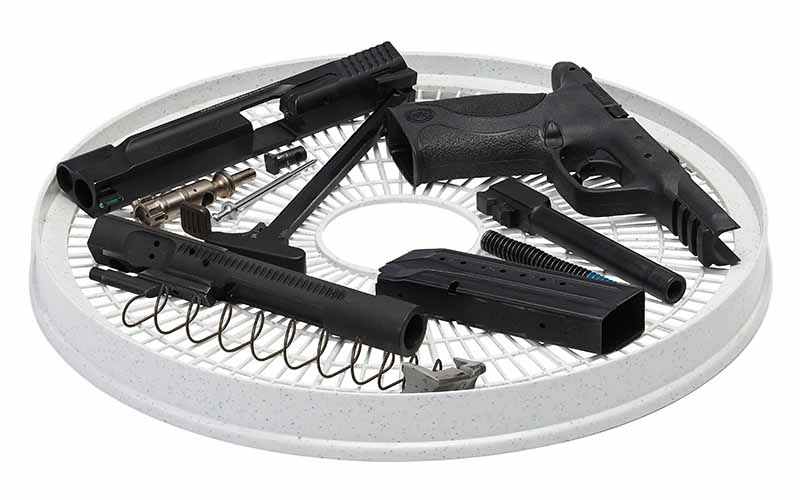
#1: Clean your gun when/before it stops working.
When you fire a gun, it gets dirty. If you shoot enough, there’s the possibility these deposits can negatively impact the operation of the gun. Maybe not so much with a single-shot, break-action shotgun, but it’s definitely the case with gas-impingement-driven, semi-automatic guns like the AR-15. Carbon, copper, lead and plastic deposits can be left in the bore. In some cases, this can degrade accuracy. Also, magazine-fed guns can become less reliable if magazines get dirty. Not so much because of fouling, bit it’s usually because magazines get dropped on the ground and attract dirt and debris.
If you start seeing reliability or accuracy issues, it could mean your gun needs to be cleaned. Just as importantly, there might be something else wrong that’s causing the issue. Regardless, it’s time to begin the PMCS process. But, ideally, you should know your gun well enough so that you never get to the point where a dirty gun is the problem.
I once had a Cooper rifle chambered for .257 Roberts that was a tack driver. But after about 25 rounds, accuracy was substantially compromised, and I had to clean the rifle’s bore. That’s an example of how copper fouling can impact accuracy. I sold that rifle because I had better things to do than clean it after every box of ammunition I fired.
When I was shooting police pistol competitions, I used handloaded lead bullets and, after about 150 rounds, my 1911 would begin to cycle a bit sluggishly. So, I’d field strip it between matches and give it a good cleaning. With both of these guns, I’d learned their fouling point and conducted PMCS before it became a problem.
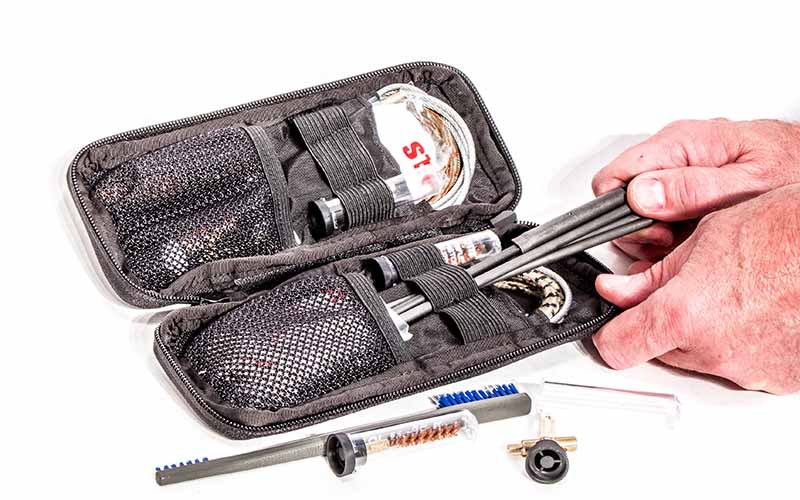
#2: Clean your gun when it gets wet.
It’s true that most modern firearms come with high-tech coatings that are very resistant to corrosion. But no matter how well a wood stock might be sealed and no matter how space age some coating might be, there’s always a weak spot. A spot that didn’t get sealed, that didn’t get coated or that has been worn.
Moisture has a way of finding these points, and this moisture doesn’t have to be in the form of rain or snow. Humidity is the invisible corrosive. After any exposure to moisture or extreme humidity, you should take your gun apart, wipe it down and apply a light coat of gun oil to all metal surfaces, regardless of if they’re stainless-steel or coated.

#3: Clean your gun when it gets dirty.
I’m not talking about the dirt of carbon or copper fouling: I’m talking about dirt and debris from outside the gun that might get on or inside it. With guns, dry and dusty environments are devilish. Guns are machines that need lubrication, but gun oil attracts dust, and guns aren’t designed to work when they’re gobbed off with dust-induced oily mud. Just as you must remain vigilant in wet conditions, you must also stay on top of your PMCS in dry climates. Compressed air is your friend, as is the frequent but limited application of lubrication.
#4: Clean your gun for long-term storage.
If you’re wise, you have a gun safe with humidity control for long periods of storage. This doesn’t circumvent the need for some corrosion-resistant gun oil, but it helps. Because of the nature of my profession, I shoot a lot of different guns often. Most of my guns rarely go a month without being fired.
However, I do own some guns that rarely get handled or fired because they’re either intended for very specific applications or because they’re heirloom firearms. When the guns I rarely shoot are fired, I give them a thorough cleaning before they’re stored, partly for their protection, but also partly so I know their condition the next time I take them out.
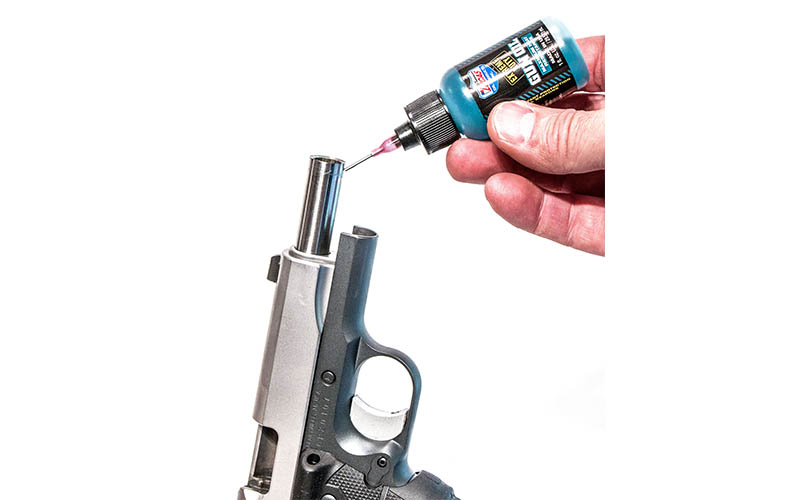
Perfecting PMCS
The care, service and/or maintenance of most mechanical devices is generally dictated by a schedule. If you were in the military, you’re familiar with PMCS that’s regulated by a time or usage table. For example, after so many days or a certain amount of usage, there are things you should check/clean. The operative word within preventative maintenance checks and service is preventative. PMCS is done to prevent failures as opposed to correct them.
For example, if you’re a long-range precision shooter, there are checks you should make before, during and after every match or range session. Similarly, some services need to be performed at certain times. You might have a rifle like my old .257 Roberts that needs to have its bore cleaned after a certain number of shots. You should check the tightness of action screws, scope mount screws and scope lens cleanliness before every match. The list of checks and services will vary, not only from gun to gun, but in frequency.
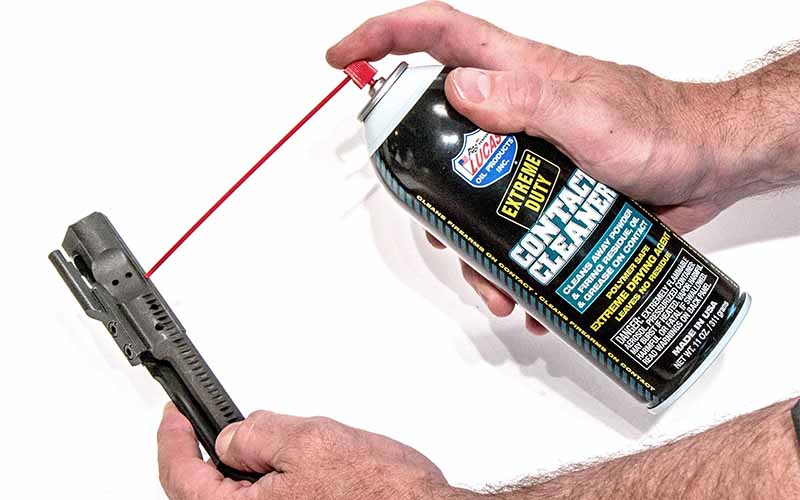
But what PMCS is not is a mandate that your gun must be completely disassembled and cleaned after every use.
The point I’m trying to make is that punching the tube or completely disassembling and cleaning your gun after every use isn’t necessary. This doesn’t mean that, after you’ve handled a gun, wiping it down with an oily rag is bad idea. It doesn’t mean that, during a high-round-count range session, it’s a waste of time to field strip a pistol and give it a quick check and wipe down. And it doesn’t mean that after a day hunting you should just throw your rifle in the rack without checking it out and maybe applying some oil or lube.
At some level, PMCS should be performed after every use and periodically, but this notion that you must fully clean a gun every time you shoot it is a superstitious belief. If it’s something you think must happen, then I’d suggest you don’t walk under ladders, stay home on Friday the 13th … and never open an umbrella inside the house.
Just sit in your easy chair cleaning your guns. All the time.
Won’t that be fun?
Editor's Note: This article originally appeared in the December 2023 issue of Gun Digest the Magazine.
More On Gun Cleaning:
- Ultrasonic Gun Cleaners: Are They Worth The Money?
- Video: Rimfire Rifle Cleaning: How And How Often?
- Breakthrough Clean Technologies' MSR Carbon Removal Tool
- How To: Suppressor Cleaning
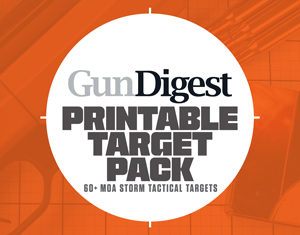
Next Step: Get your FREE Printable Target Pack
Enhance your shooting precision with our 62 MOA Targets, perfect for rifles and handguns. Crafted in collaboration with Storm Tactical for accuracy and versatility.
Subscribe to the Gun Digest email newsletter and get your downloadable target pack sent straight to your inbox. Stay updated with the latest firearms info in the industry.

![Best Concealed Carry Guns In 2025 [Field Tested] Wilson Combat EDC X9S 1](https://gundigest.com/wp-content/uploads/Wilson-Combat-EDC-X9S-1-324x160.jpg)


![Best 9mm Carbine: Affordable PCCs [Tested] Ruger Carbine Shooting](https://gundigest.com/wp-content/uploads/Ruger-Carbine-Shooting-100x70.jpg)
![Best AR-15: Top Options Available Today [Field Tested] Harrington and Richardson PSA XM177E2 feature](https://gundigest.com/wp-content/uploads/Harrington-and-Richardson-PSA-XM177E2-feature-100x70.jpg)

Author completely forgot that the military and civilian ammunition manufacturers used highly corrosive primers till the 60’s !!!
I agree with the question about CLP. While I assume it’s usually adequate, occasionally the full set of chemicals should be used. Advice on “occasionally” or on the factors or conditions under which a “full set” cleaning should be done would be appreciated.
My father was an avid quail and raccoon hunter for 50 years. He hunted every chance he had while being a UMWA member and farmer. I can’t recall one time he cleaned a firearm and they never failed to cycle/fire. He did occasionally wipe them down with an oily rag.
Sure; tell today’s average gun owner that firearm cleaning isn’t all that important. Cleaning is a ritual that instills respect for one’s firearm and keeps gun owner familiar with components. I really liked the sarcasm cast at those who prefer to give optimum care for a potential lifesaving tool.
Can you comment on exclusively using all-on-one CLP products like hornady one-shot for your PMCS? I like the ease of use and clean oil-free carry. It seems to qualify for storage as well? Not sure about 1911 or ar-14 usage though?